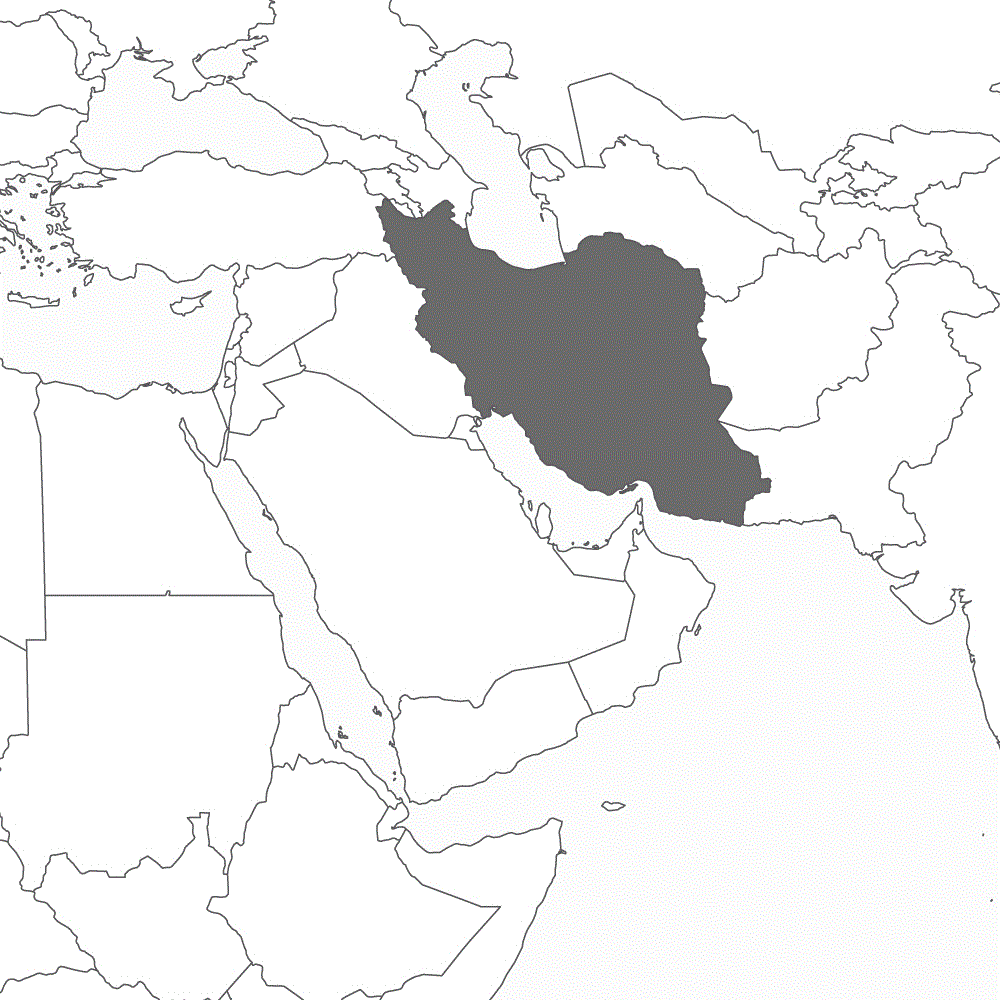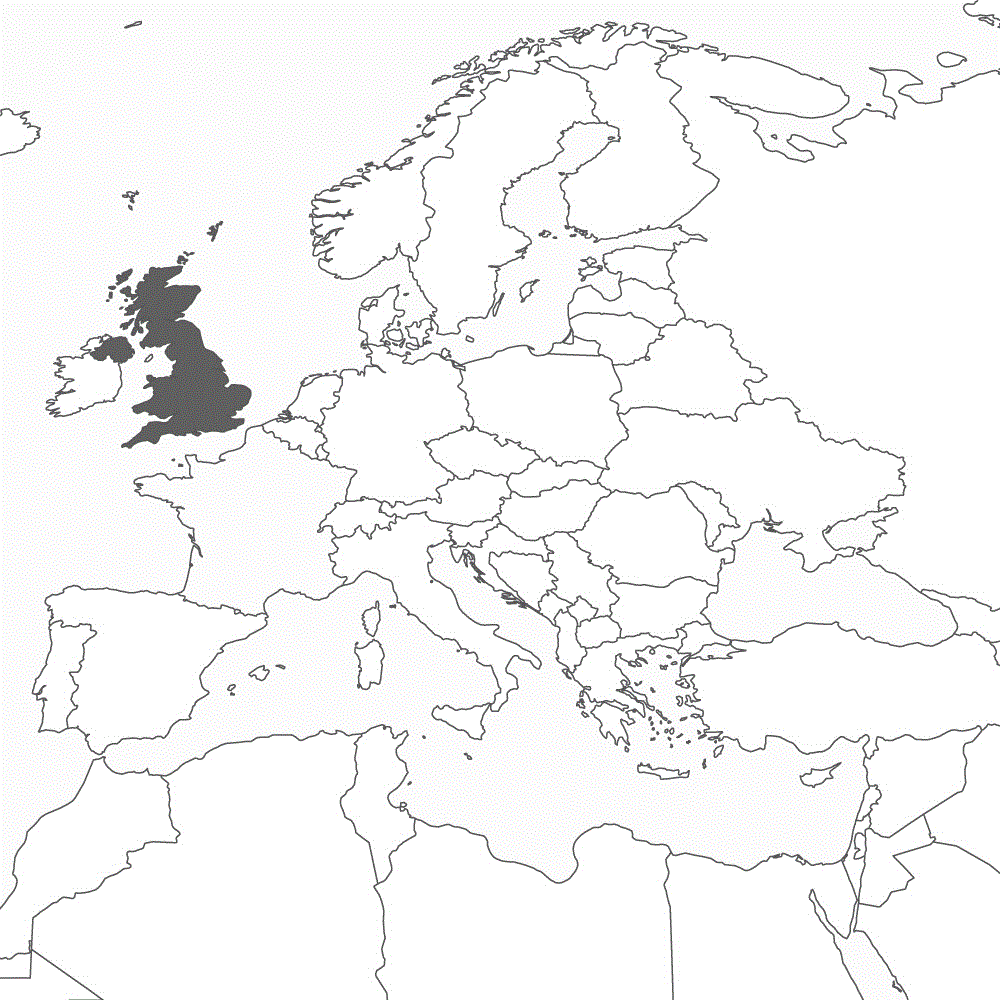Iran's Shift to the East
With oil purchases and agreements of cooperation, China ensures long-term influence in Iran. Berlin and Brussels lose out due to US sanctions.
BERLIN/TEHRAN/BEIJING (Own report) - Berlin and the EU could permanently lose out on political influence and substantial business deals in Iran, due to new agreements between Iran and China, on the one hand, and to the ongoing US blockade of Tehran on the other. The People's Republic of China has not only been able to somewhat maintain its Iranian oil imports despite US sanctions, and, since the beginning of the year, also register a significant increase. Over the weekend, Beijing even concluded a comprehensive cooperation agreement with Tehran, which provides for huge investments and could, in the long run, procure a long-term dominant economic influence for China in Iran. Germany's attempt to sidestep US sanctions in favor of German business with Iran has failed, with no perspective for relaunching its traditionally lucrative economic activities in that country. Experts complain that the Biden administration is even blocking necessary humanitarian imports of food and Covid-19 vaccines. Read more
In the Vaccine War
EU again orders inspection of a vaccine filling plant. EU export controls cost precious time in global vaccine production.
BRUSSELS/BERLIN/LONDON (Own report) - The EU's serious failings in procurement of Covid-19 vaccines are dragging the Union into internal and external conflicts prior to today's summit. Tensions are growing between EU states, because poorer countries are being discriminated against in the distribution of the scarce supply of vaccines and are thus lagging behind in their vaccination programs. The fact that a growing number of EU member states, in addition to the protracted procurement at Union level, have begun to purchase Russian vaccines on a national level has caused further conflicts. Several allied countries are very upset because the EU has widened vaccine export controls and openly threatens to impose export bans. It was reported yesterday that the EU Commission had ordered the police to inspect an AstraZeneca vaccine filling plant in Italy, accusing the company of smuggling vaccines to the UK in a breach of contract. The accusation proved to be unfounded. According to insiders, the EU's maneuvers are already wasting precious time in global vaccine production. Read more
Global Britain and the EU
The political conflicts between the EU and Great Britain - also over vaccines - are increasing while economic ties are decreasing.
BERLIN/LONDON (Own report) - The controversy between the EU and Great Britain over access to Covid-19 vaccines is escalating. The persistent EU campaign against the vaccine by AstraZeneca (headquartered in Cambridge) has already provoked considerable anger in the UK. Brussels' threat to withhold future vaccine supplies from Great Britain is further exacerbating tensions. Recently, the EU ambassador to the UK was summoned to the Foreign Office by British Foreign Secretary Dominic Raab. Brussels, on the other hand, has launched legal proceedings against London over a breach of the Brexit deal's Northern Ireland Protocol. While political tensions are rising, economic ties are diminishing - apparently a long-term trend. Experts forecast that overall UK trade with the EU could fall by about a third by 2030. At the same time, the UK is rapidly expanding its economic ties to Asia - and plans to shift the focus of its foreign policy to the "Indo-Pacific." Read more
Together Against China
The EU decides to impose sanctions on Beijing - thus joining the escalated US offensive against the People's Republic of China.
BERLIN/WASHINGTON/BEIJING (Own report) - The EU is joining the United States' sanctions policy against China, thus imposing - for the first time since 1989 - coercive measures on the People's Republic. Yesterday's decision includes entry bans and freezing the assets of four Chinese government officials and an institution and is expected to be formally adopted by the EU foreign ministers next Monday. At the same time, new US sanctions are coming into effect, imposed by the Biden administration yesterday on 24 high ranking Chinese officials. If, and how Beijing will react remains unclear. With its last counter-sanctions it had made it more difficult for some top politicians of the Trump administration to assume lucrative posts in the private sector. The new wave of transatlantic sanctions is part of an offensive à la Trump, pursued by the USA, not only to include new economic sanctions but also to increase political and military pressure. The German government participates by deploying a frigate in the South China Sea. Read more
German-Russian Energy Bridge
Berlin calls on the EU to modify its policy toward Russia with the objective of cooperating in the use of hydrogen power.
BERLIN/MOSCOW (Own report) - In the run-up to next week's EU summit, Berlin is calling on the EU to modify its policy toward Russia. This was indicated in a report on an internal meeting in Brussels and a "non-paper" from Germany circulating within the EU. According to the report, at a meeting last week with several top officials of the EU External Action Service, the German EU Ambassador to Russia, Markus Ederer, advocated enhanced cooperation with Moscow in selected areas. Already earlier, a German non-paper circulating within the EU promoted closer cooperation on climate change, particularly on the use of hydrogen power, despite continued EU sanctions. Whereas the German need to import hydrogen will grow considerably in the coming years, Russia possesses great potential for producing hydrogen from natural gas and from wind power. Work on initial projects has already begun, with Berlin's support. It has been noted that, in the future, the Nord Stream 2 pipeline could be converted for importing hydrogen. Read more
The Asian Century
German companies are increasingly dependent on their business with China and are expanding their activities in China despite US economic warfare.
BERLIN/BEIJING (Own report) - German companies are increasingly dependent on business with China and are shifting their activities to the People's Republic at a growing rate, as current economic data and a recent survey of German companies reveal. China is not only one of the very few countries, to which German companies could continue to export in 2020 as much as in the previous year, but it is also the only major economy, to which they could already export this January more than during the same month the previous year. The fact that exports to the People's Republic are a vital support for the German economy is particularly significant, because Germany's domestic consumption remains sluggish, due to the pandemic. Already five DAX companies, such as VW, Daimler, Infineon, are generating their largest share of sales in China, more than on their German domestic market. To protect themselves against the risks of US economic warfare, German companies doing business with China are increasingly relocating their activities to the People's Republic. Efforts to encourage their withdrawal from China have failed. Read more
Europe First
Following their initial vaccine export ban, the EU and its member states continue to block the expansion of vaccine production by refusing to temporally waive patents.
BERLIN/BRUSSELS (Own report) - Following their initial Covid-19 vaccine export ban, the EU and its member states, Germany included, continue to block the global expansion of vaccine production by not temporally waiving patents. The discussion of waiving patents, which would allow global vaccine production in significantly more production facilities, will be on the agenda of this week's meeting of the relevant WHO committee (the "TRIPS Council"). Berlin and Brussels continue to oppose the idea. Instead, declaring it needs the vaccine itself, last week, the EU Commission decided to block the export of 250,000 doses of the AstraZeneca from Italy to Australia - setting a global precedent. Like the introduction of export controls in late January, this measure has been met with massive protests worldwide. According to observers, Brussels is pursuing this rigid course at the behest of EU Commission President Ursula von der Leyen and "her German entourage." Von der Leyen, in turn, is acting under heavy pressure from Berlin. Read more
War Exercise Despite Pandemic (III)
The US Army Europe and the Bundeswehr prepare for the major Defender Europe 21 large-scale exercise - targeting Russia.
BERLIN/WASHINGTON (Own report) - NATO countries are preparing for a second major "Defender Europe" exercise. Opening activities are scheduled for May. Last year's Defender Europe 20 would have been, in its originally planned version, the largest exercise under US command since the end of the Cold War. Defender Europe is conceived as a series of annual exercises to maintain and expand Europe's new level of militarization. Defender Europe 21 - also targeting Russia - is planned on a comparable scale as last year's exercise, however, with a different regional focus - the Black Sea rather than the Baltic region. Germany is also involved, on the one hand, directly participating with its own soldiers and on the other with logistical support. Last year, civilian infrastructure had also been placed at the disposal of NATO troops. In addition to the Defender Europe exercises against Russia, the United States is planning a series of Defender Pacific exercises targeting China. Read more
The Spiral of Escalation
Brussels imposes new sanctions on Moscow, due to a loss of EU influence in favor of Russia.
BERLIN/BRUSSELS/MOSCOW (Own report) - The EU is escalating the conflict with Russia using new sanctions. Yesterday, Brussels imposed coercive measures against four Russian officials: They will be denied entry into the EU and possible assets within EU member states will be frozen. In a coordinated move, Washington also announced new sanctions, to demonstrate transatlantic unity in the power struggle with Moscow. While the EU - cloaking itself in a posture of alleged moral superiority - declares its aggression as a commitment to human rights, it is ratcheting up its actions, due to strategic considerations: Russia has been gaining significant influence in countries Berlin considers to be within the EU's immediate spheres of influence, such as Syria. The German government has also been unable to assert itself against Russia as the regulatory authority east of the EU within the framework of the "Minsk Process." To increase the pressure, Brussels is now using sanctions also to instigate protests around the Navalny case. Within the German elite "regime change" is explicitly mentioned. Read more
GERMAN-FOREIGN-POLICY.com
Information on German Foreign Policy: News + Interviews + Analyses + Background




